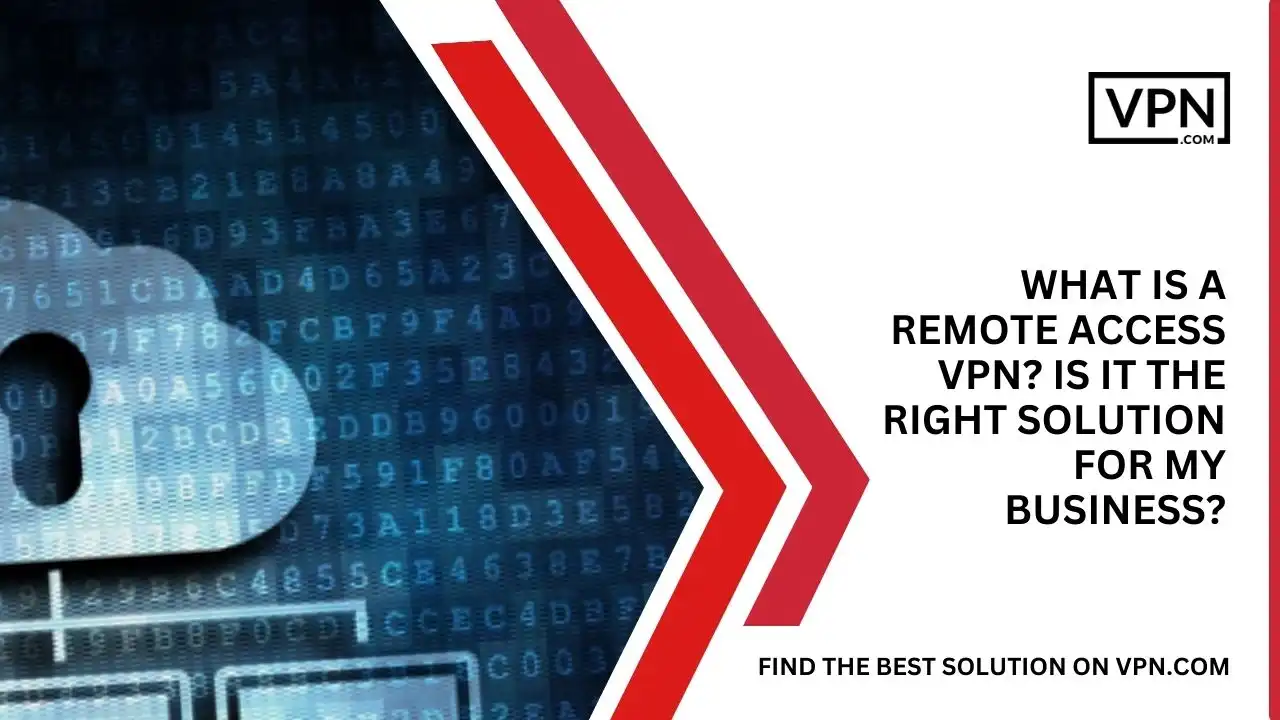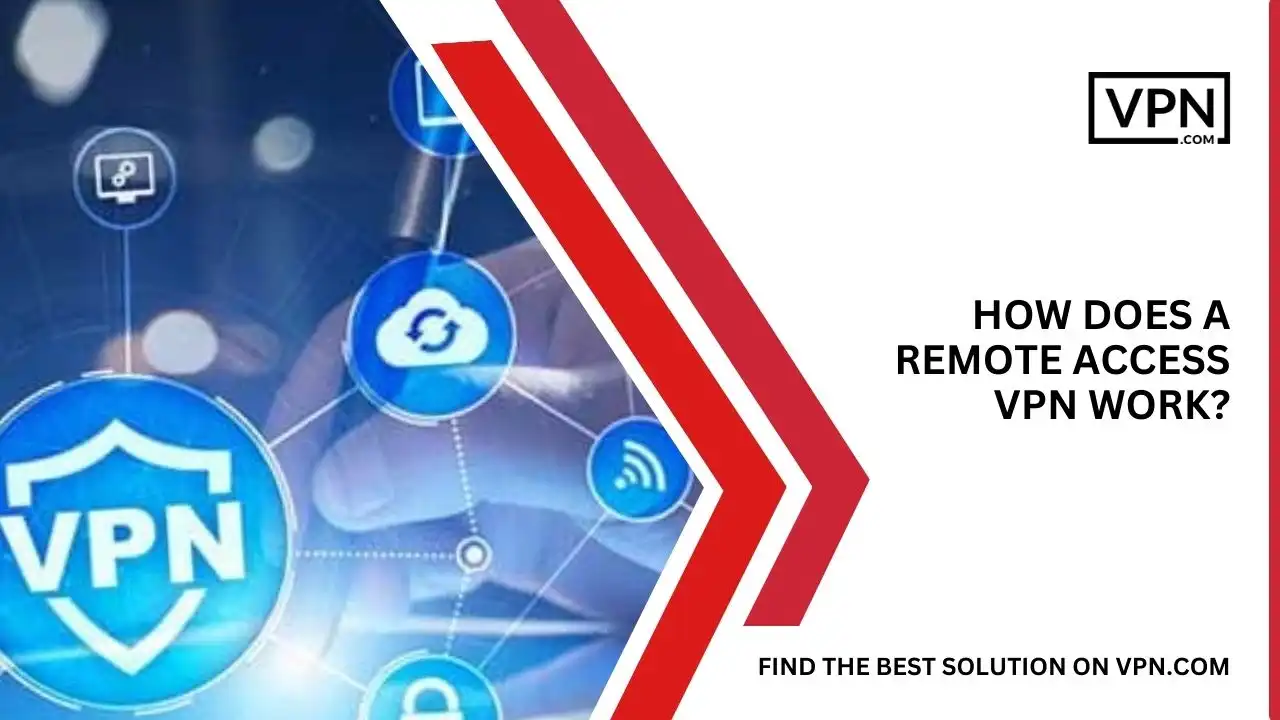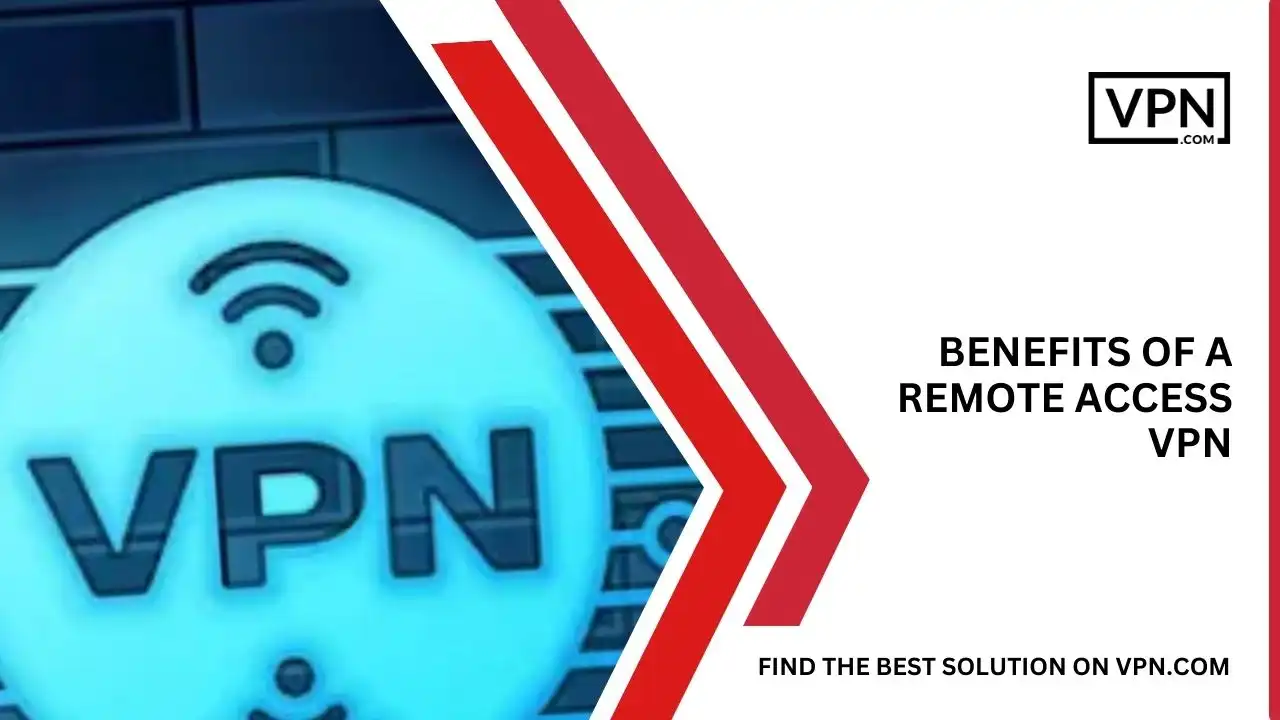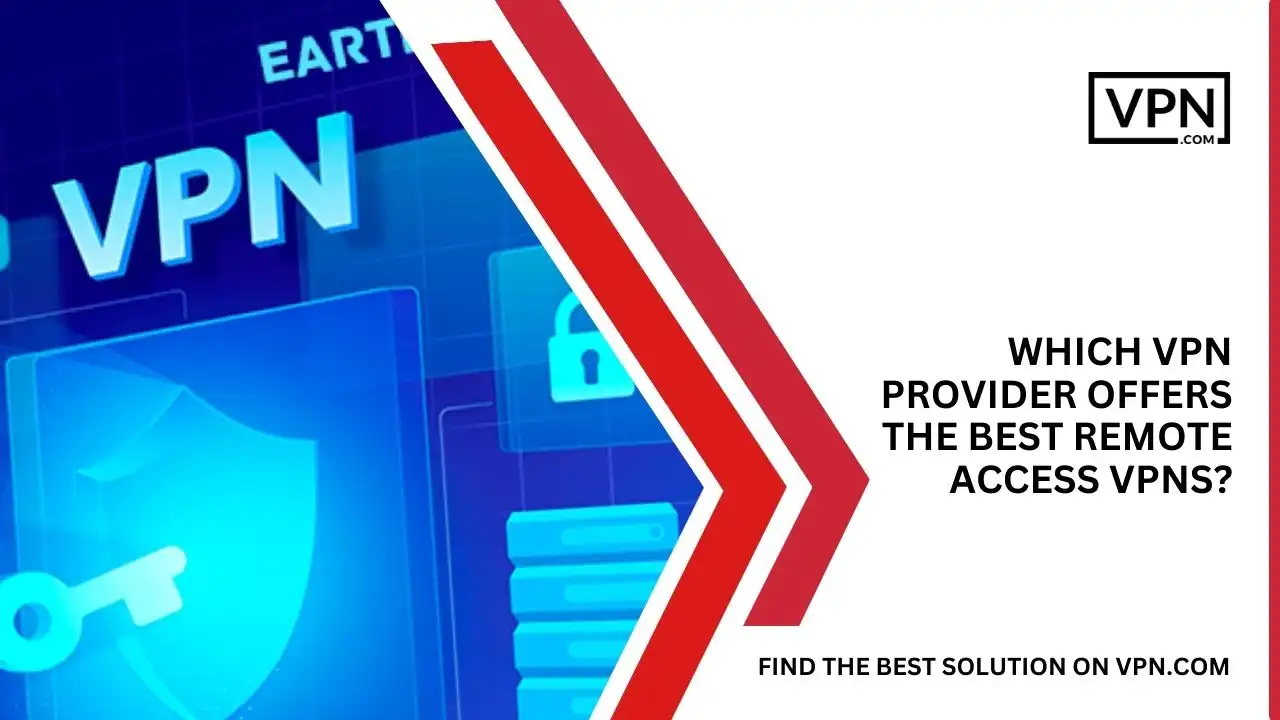What Is A Remote Access VPN? Is It The Right Solution For My Business?

2020 was the start of remote work for big corporate companies that can’t force their employees to come to the office on a daily basis due to lockdowns and severe Corona cases.
But when all corporate companies shift their workflow from offices to homes, many problems occur to the business owners & corporate CEOs & employees.
Security and privacy are the real reasons why all businesses opt for Remote access VPNs which allow the employees to access the company’s network & resources through a strong encryption tunnel.
Remote access VPNs are the savior of all big and small businesses who want to grow and work, and in this article, we’ll discuss what remote access VPNs are, how they work, what the difference between remote access and normal VPNs, its benefits, how would they benefit your business, which remote access VPN provides the best remote access, and all security concerns related to this VPN.
What Is A Remote Access VPN?
A Remote Access VPN allows users to connect to their organization’s private network to access resources shared within that network. It’s predominantly used by remote companies & employees to ensure a secure connection.
This virtual private network is mostly used by remote companies & remote employees to save the company from multiple threats and provide a safe environment to the employees where they can work without the fear of hackers & cyber crimes.
Remote employees can safely access the private network of the company to complete their jobs and tasks while working outside the office from their homes with enhanced security.
Several Remote access VPNs exist on the internet, each with its own encryption methods, protocols, and tunneling process to prevent unauthorized users who want access to the private network.

Get Started w/ NordVPN Today
- Top-rated VPN for OS unknown
- Ultra-fast speed in US in 2024
- Save 69% off with VPN.com Discount
- Plans starting at $2.99/month
- Rated 4.5/5 on Google Play with over 825,000 reviews
- Rated 4.7/5 on Apple App Store from 6,600 users
How Does A Remote Access VPN Work?

A Remote Access VPN connects remote employees to their company’s network by linking their device to the company’s server. Companies use an intranet for this purpose, and the VPN ensures a secure connection through encryption.
Most big organizations, especially the corporate offices where one building has multiple departments use an intranet (an internal network which allows the users to access private resources, messages, files & programs.)
If all the employees are in the same location, then it’s easy as cake to manage the whole network, but if your employees work from different states or countries, and you don’t want to give them access to all the files & resources, Remote access VPN is the best option for you.
To maintain a safe & secure network, many companies and organizations force their remote employees to install a VPN on their laptops and PCs which they work on, and configure the office routers to send & receive data in an encrypted VPN tunnel between the client & the server.
Difference Between A Regular VPN And Remote Access
Remote access VPNs are nothing but a type of virtual private network that creates a private network for you so you can browse the internet with the public wifi and stream your favorite shows in multiple regions by routing all user traffic through an encrypted VPN tunnel.
A Regular Virtual Private Network is like an ecosystem between the device & the server like a LAN across the public network (internet) which needs a client application (VPN App) so the users can access its features.
While a regular VPN creates a private network for general online activities, a Remote Access VPN specifically allows employees to securely connect to their company’s private network from remote locations.
Benefits Of A Remote Access VPN

As you all know, there are several remote access VPNs available on the internet today, and each one has its own set of characteristics, some are good, and most are bad, but don’t worry as in this guide, we have described some of the most common benefits which every remote access VPNs have:
- Prevent Unauthorized Access: A Remote access VPN has the ability to stop unauthorized users who want to enter the private network of a big corporation and organization to ensure that the employees can access the internet networks and resources when they sign into the VPN client using Multi-Factor Authentication.
- Reduce The Threats Of Cybercrime: The chances of cyberattacks increase when employees work from home due to the fact if the device of one remote user is compromised, the whole network is at risk & danger of spear phishing & ransomware attacks. You can actually reduce the chances & risks of cybercrime by using a remote VPN for your business.
- Streamline Remote Access: With a premium remote VPN, users can easily access the resources they need to maintain effective remote teams, keeping everyone on the same network.
- Zero Trust Network Access: Remote Access VPN Software is a part of the Zero Trust Network where employees repeatedly authenticate themselves to access different parts of the organization’s network to boost the network security so hackers can’t get access to the whole network with one compromised device.
In short the benefits include preventing unauthorized access, reducing the threats of cybercrime, streamlining remote access, and adhering to a Zero Trust Network Access approach.
How Would A Remote Access VPN Be Useful To Me And My Business?
Do you know that Data is the most important asset for any organization whether it’s operating at a local level or working with international clients & customers especially in 2023 when the crimes are at the top?
No business owner or a corporate CEO wants to put the sensitive and private information of its company in danger–That’s where Remote Access VPNs come in which have the ability to encrypt the data transmitted from the VPN Tunnels.
When an off-site employee sends and receives data through an encrypted VPN Tunnel, no hacker can intercept that data even if the employee is using public wifi while traveling.
Remote VPNs aren’t only safe for data transmission but also are affordable which is one of the reasons why organizations feel comfortable when their employees work from home.
Which VPN Provider Offers The Best Remote Access VPNs?

NordVPN and ExpressVPN are top providers with their own protocols, NordLayer and Lightway respectively. Both have advanced encryption methods, but ExpressVPN is often recommended for higher security.
ExpressVPN uses AES-256-GCM and ChaCha20/Poly1305 ciphers to encrypt traffic, along with D/TLS 1.2 for server authentication. The AES-256 and ChaCha20 ciphers offer a very high level of encryption that is currently considered unbreakable.
On the other hand, NordVPN uses AES with 256-bit keys, which is recommended by the NSA for securing classified information, including the TOP SECRET level. Both of them provide high security & privacy, but we recommend our customers check out ExpressVPN as it is more secure.

Get Started w/ NordVPN Today
- Top-rated VPN for OS unknown
- Ultra-fast speed in US in 2024
- Save 69% off with VPN.com Discount
- Plans starting at $2.99/month
- Rated 4.5/5 on Google Play with over 825,000 reviews
- Rated 4.7/5 on Apple App Store from 6,600 users
Conclusion
We hope after reading this article, you now have a better understanding of what remote VPNs are, how they work, the difference between a regular and a remote VPN, the benefits of remote VPNs, why business owners must purchase this VPN, and who provides the most affordable remote access virtual private network in 2023.
And don’t use a free VPN for your business, you might think that it’s safe and have no issues, but the fact that your “so-called free VPN” is selling your personal information & sensitive data to third-party applications is against the whole purpose of VPNs.
In case you want more information about the best virtual private networks in 2023, check out the other articles in our website blogs where we have discussed each Remote Access VPN in detail.
Customer Reviews for NordVPN: In-Depth Review, Tests, and Stats

Connection issues with MLB.TV
May, 2 2023

Prompt customer service
May, 6 2023

I would highly recommend
December, 15 2023



